What Leah in the Bible Can Teach Us About Comparison
In this guest post by Heather Creekmore of comparedtowho.me, you’ll learn more about who Leah in the Bible is and what she can teach you about comparison.
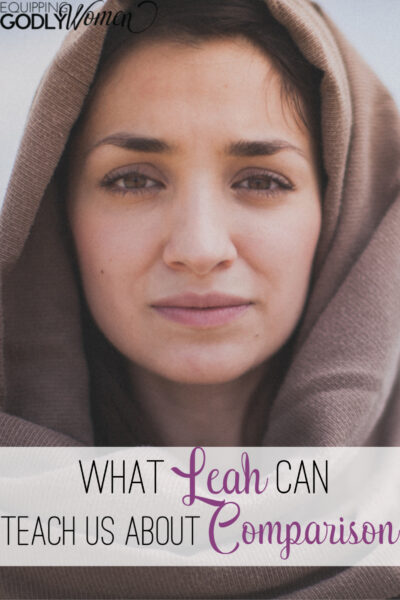 I remember the morning my Sunday School teacher pressed illustrated cut-outs of two sisters onto a large purple flannel board.
I remember the morning my Sunday School teacher pressed illustrated cut-outs of two sisters onto a large purple flannel board.
The older daughter was Leah and the younger daughter Rachel. The story intrigued me. I knew right away which character I’d rather be: Rachel of course!
Why would I choose to be Rachel over Leah in the Bible?
It’s simple really. Rachel was beautiful, so she caught the eye of Jacob who fell wildly in love with her. In my mind, this is what beauty was for. Beautiful women, in my middle school mind, had all their dreams come true.
But, then there was Leah. The third wheel. An underdog. The woman no man wanted. She wasn’t as pretty as Rachel so her dad, Laban, had to trick someone into marrying her. Of course, the bummer is the man he tricked just happened to be Jacob—the same guy who was head over heels for her younger sister.
I only felt sorry for Rachel. It seemed her perfect romance was spoiled by deceit.
I never stopped to think about Leah. Neither did I pause to think of how hurtful it must have been for her to spend that wedding night with Jacob knowing he thought he was making love to Rachel.
How painful the dagger of his angry words, “You’re not Rachel!” must have felt that next morning. Never once did I consider Leah in the Bible’s hurt.
Who Was Leah in the Bible?
In the same way that I neglected to consider Leah’s feelings, I’ve noticed that many in modern Christianity neglect Leah in the Bible, too. She rarely makes it into books of Bible heroines. Sure, she and Rachel are remembered as helping build up the house of Israel, but there are no real mentions by anyone of Leah alone.
I’ve never heard anyone name Leah as their favorite woman in the Bible. Sure, on occasion she gets a parenthetical mention in a sermon, but generally, it seems Leah in the Bible is more of a zero than a hero.
But recently I’ve come to embrace Leah in the Bible’s story.
Truth is, scripture gives us more details about Leah’s appearance, relationship with her sister, her marriage, and her mothering than many other women who fill Bible study books. What can we learn from Leah in the Bible? In this post, I’ll share two of my favorite lessons.
Guess what! This post is part of a series on the Great Women of the Bible.
Be sure to check out all of the other posts in this series here: 15 Great Women of the Bible Every Christian Woman Should Study.
We are studying great women of the Bible including Mary Magdalene, Ruth, and the Proverbs 31 Woman, so you’ll definitely want to check them out!
2 Lessons We Can Learn from Leah in the Bible
1. There Are No Winners When Sisters Wrestle
Sister wives are a bad idea. Right? It doesn’t take a lot of imagination to understand just how difficult it would be to share a husband with your sibling. Yikes!
But, the way these two sisters took a bad situation and made it worse—through a crazy baby-making competition—teaches us an interesting lesson in worship.
In Genesis 30:1 we read that Rachel envied Leah in the Bible. It’s a strange plot twist because Rachel was the beautiful sister. Jacob loved her. It seems Rachel would be the object of envy rather than the purveyor of it.
In American culture where we value things like looks and love, this doesn’t make sense. But back then babies—especially sons—were the way a woman chased worth.
While Rachel’s womb stayed closed, Leah cranked out boys for Jacob.
Scripture shows that Rachel didn’t take this very well. In Genesis 30:2 we read Jacob’s angry response to Rachel’s frustration. One can assume this wasn’t the first time Rachel complained about being barren.
Meanwhile, Leah kept having babies but had issues of her own to work through.
Genesis 29 provides a narrative that reveals how the names Leah in the Bible chose for each of her boys reflected a deeper desire for connection with Jacob.
As she names her first son Reuben (the name Reuben means “behold, a son,” she says, “The Lord has surely looked on my affliction. Now my husband will love me.” With her second son, Simeon, Leah laments that though he hates her, at least maybe her husband will now listen to her. With her third son, Levi, Leah hopes that now, with a third son, Jacob will be attached to her. But, by her fourth son, Judah, Leah seems to have had a change of heart. When Judah is born she only says, “Now I will praise the Lord.” (She went on to have two more sons, Issachar and Zebulun, as well as a daughter, Dinah.)
Does Rachel learn from Leah in the Bible’s example that babies don’t satisfy? No.
Instead, like Abraham’s wife Sarah, Rachel decides that if God won’t give her a baby, she’ll make it happen another way. She makes her servant Bilhah sleep with Jacob and when she has a son, Rachel claims victory. “I have wrestled with my sister and won,” Rachel states in Genesis 30:8.
Though between Rachel and Leah and two servants, Jacob ends up having twelve sons altogether who eventually make up the tribes of Israel (Leah’s six sons, Zilpah the servant’s two sons Gad and Asher, Bilhah the servant’s two sons Dan and Naphtali, and Rachel’s two sons Benjamin and Joseph), there are no real winners when sisters wrestle. Leah in the Bible gives us a glimpse of what it looks like to drop out of the comparison game, while Rachel shows us the crazy that comes when we won’t stop comparing.
When we strive for what we think will give us value (like Rachel in the Bible) or work for what we think will bring us love (like Leah in the Bible) we miss out on the opportunity to rest in contentment. We misplace our worship, chasing things like beauty or babies, hoping we’ll find peace.
But, as the story of Leah in the Bible shows us, the game of comparison has no winners, only wrestling sisters who keep score and stay miserable. Only by dropping out of the competition and determining, instead, to praise the Lord, regardless of their circumstances, can we find victory.
2. God Has Given Us Everything We Need
Biblical scholars argue over whether or not Leah in the Bible was actually ugly or just “uglier” than Rachel. To me, the word “but” in the middle of Genesis 29:17 (“Leah’s eyes were weak but Rachel was beautiful in form and appearance.”) is a giveaway that God wants us to know these two women were different, physically.
But I wonder: why does God make the distinction? Is the fact that Rachel was the more beautiful sister really important to the story?
Yes, it is, for this reason: God wants us to see how he can and will use anyone.
Part of the beauty of the story of Leah in the Bible is that even though she wasn’t the attractive “star” of her family—God still used her in a phenomenal way. Her son, Judah, became the father of the tribe that birthed both King David and eventually Jesus Christ, the Messiah.
Leah in the Bible had an amazing purpose—she was a great (and several more greats) grandmother to Jesus.
Leah in the Bible’s life reminds us that God has given each of us everything we need, physically, to accomplish his purpose for our lives. He doesn’t need us to lose the baby weight, tone up, or look “put together” before he can use us. God was intentional in the way He made us and he’s just as intentional about the plan He has for our lives.
Comparison has become an epidemic in our world. And, though we can certainly blame social media and cable networks for constantly allowing us to observe “better” lives, it’s important to remember that comparison was a problem even in Bible times.
There will always be someone to whom we can compare ourselves—friends, family members, women on the internet—but, we must consciously decide every day to believe God’s truth about comparison.
Related Reading: Constantly Comparing Yourself to Others? Here’s How to Stop.
God made Rachel and Leah in the Bible look different on purpose. Why? Because he had different purposes for each of their lives. Likewise, God doesn’t ask us to be more like anyone we admire on television or Instagram; instead, he simply asks us to be more like Jesus. To try to be more like someone else distracts us from the unique path he has for us.
When I feel like a “less than,” or wonder why God couldn’t have made me more like the “Rachels” in my life, it helps me to remember Leah in the Bible and the mighty ways God uses those who feel like they don’t measure up.
Which of these lessons from Leah in the Bible do you find the most inspiring? Do you think we can ever get away from the comparison epidemic?
 Through her blog and podcast, Heather Creekmore writes and speaks hope to thousands of women each week, inspiring them to stop comparing and find their true purpose in Christ.
Through her blog and podcast, Heather Creekmore writes and speaks hope to thousands of women each week, inspiring them to stop comparing and find their true purpose in Christ.
Her first book, Compared to Who? A Proven Path to Improve Your Body Image encourages women to uncover the spiritual root of body image issues and find freedom. Her second book, The Burden of Better: How a Comparison-Free Life Leads to Joy, Peace, & Rest released in 2020. Heather and her fighter-pilot-turned-pastor husband, Eric, live in Texas with their four children.
In her free time Heather homeschools, shops clearance racks, and competes on Netflix baking shows. Connect with Heather on Facebook, Instagram, or Pinterest.

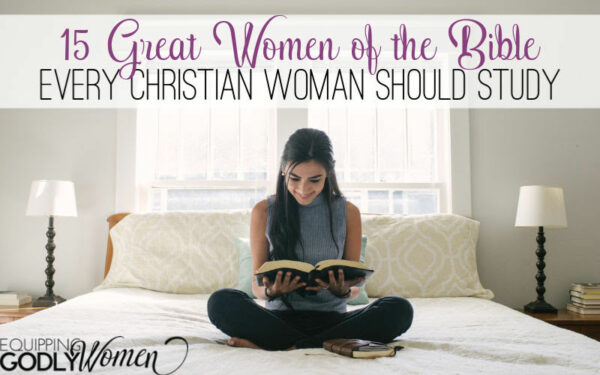
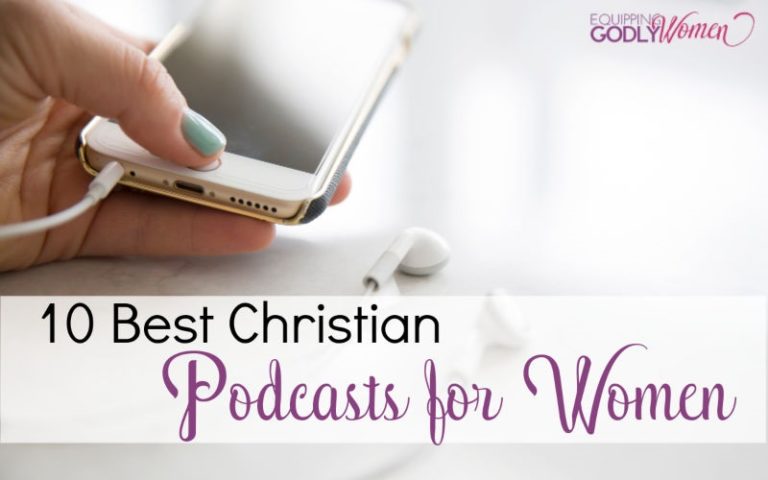


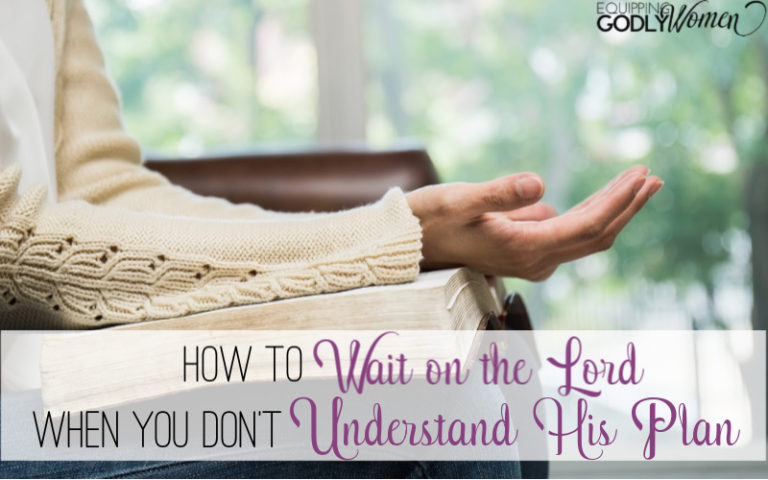

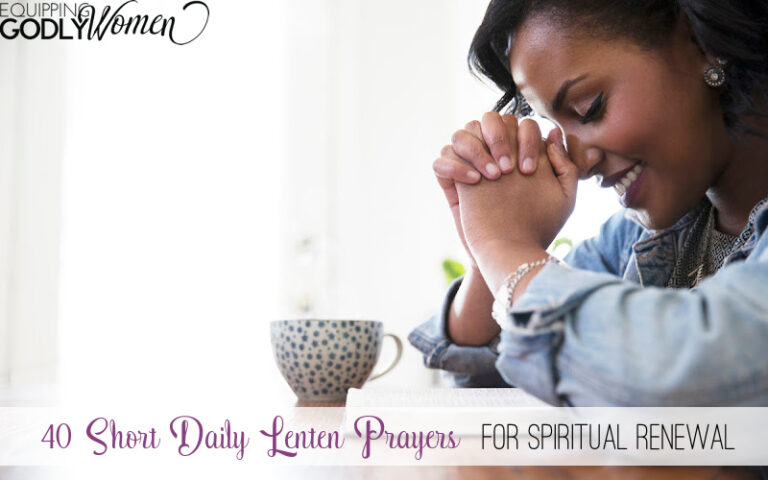
I never thought of Leah's story like that before!! She was truely an instrament of the God Almighty (El Shaddai). It proves that God can use anyone, even someone like you and me.
Absolutely, 100% agree with you. Even you and me. 🙂